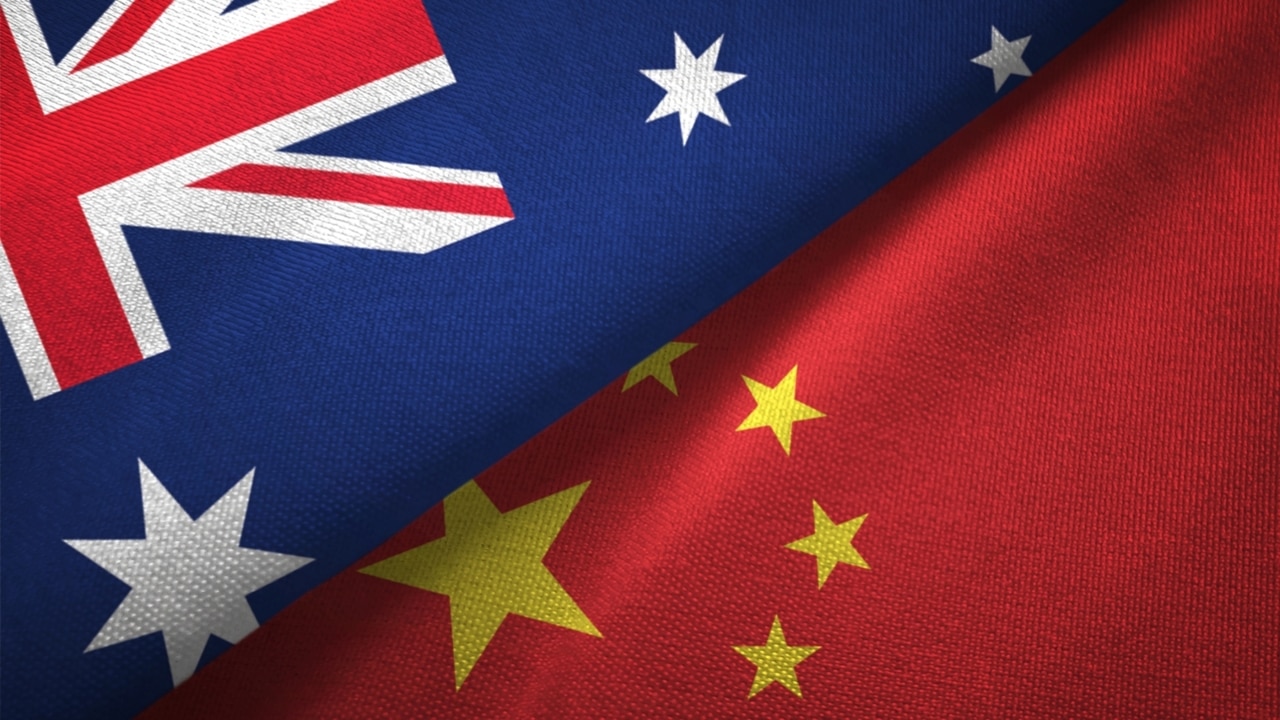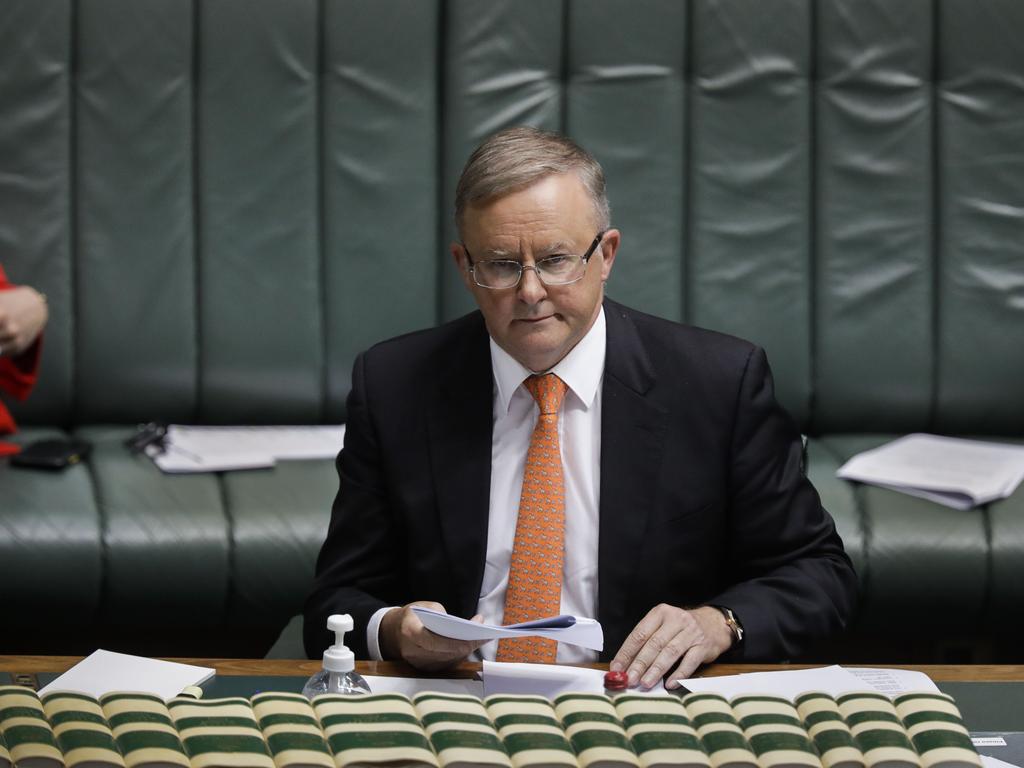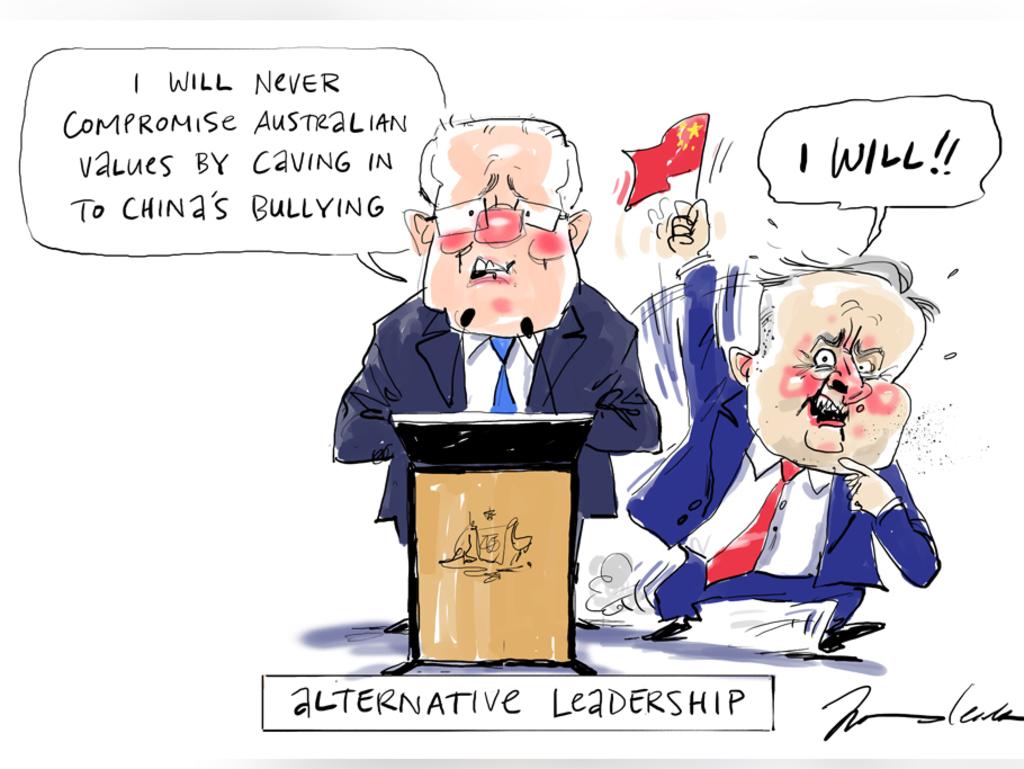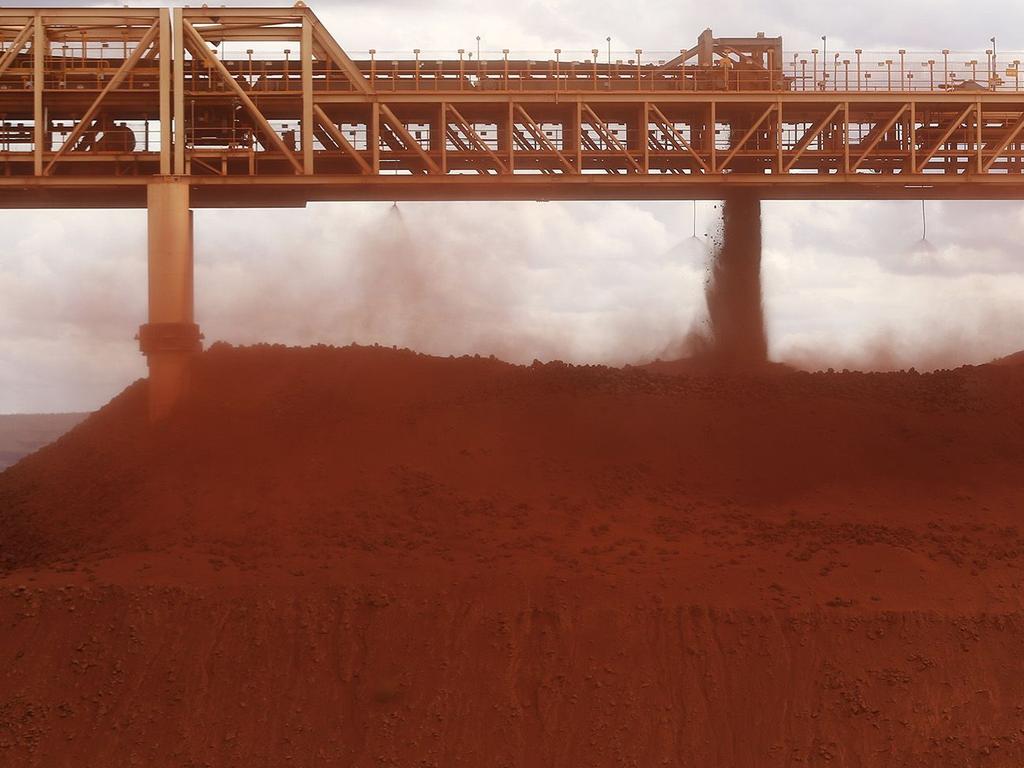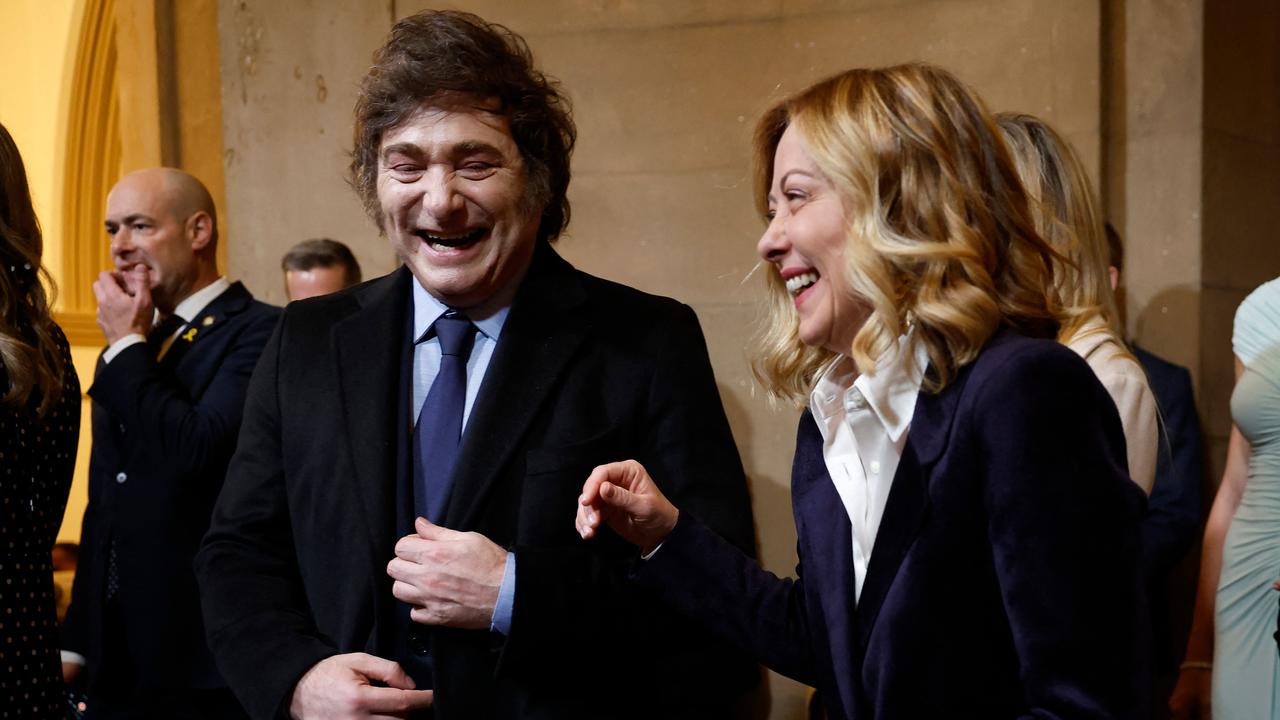Labor abandons unity on China
Labor splits with the Coalition over China in a rare divide on foreign affairs, accusing Scott Morrison of presiding over a ‘breakdown’ in ties.
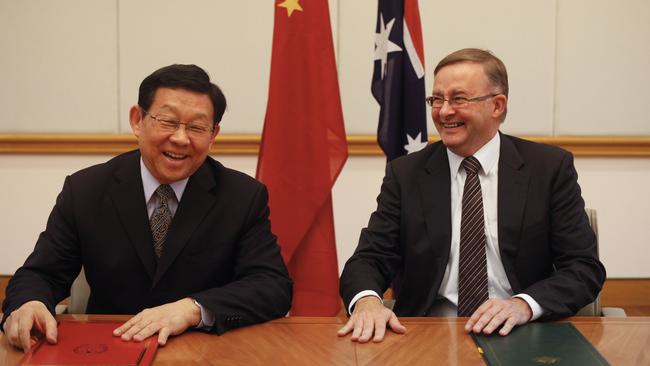
Labor has split with the Coalition over China in a rare divide on foreign affairs, accusing Scott Morrison of presiding over a “complete breakdown” of relations with Beijing.
Anthony Albanese, describing the publication of a fake image of an Australian soldier holding a knife to an Afghan child’s throat as “disgusting and offensive”, warned the federal government it needed to “work on the relationship” with China.
It was “extraordinary” that senior ministers were unable to reach their counterparts in Beijing, the Opposition Leader said.
Mr Albanese’s comments — and talking points suggesting Labor MPs criticise “inflammatory” government rhetoric — came as US ambassador to Australia Arthur Culvahouse Jr called on China to “follow Australia’s example” by opening up to outside scrutiny.
Other Labor MPs, including former leader Bill Shorten, also criticised the handling of the relationship with China. “I’m not sure our own government has handled this up to now as well as they could have,” Mr Shorten said.
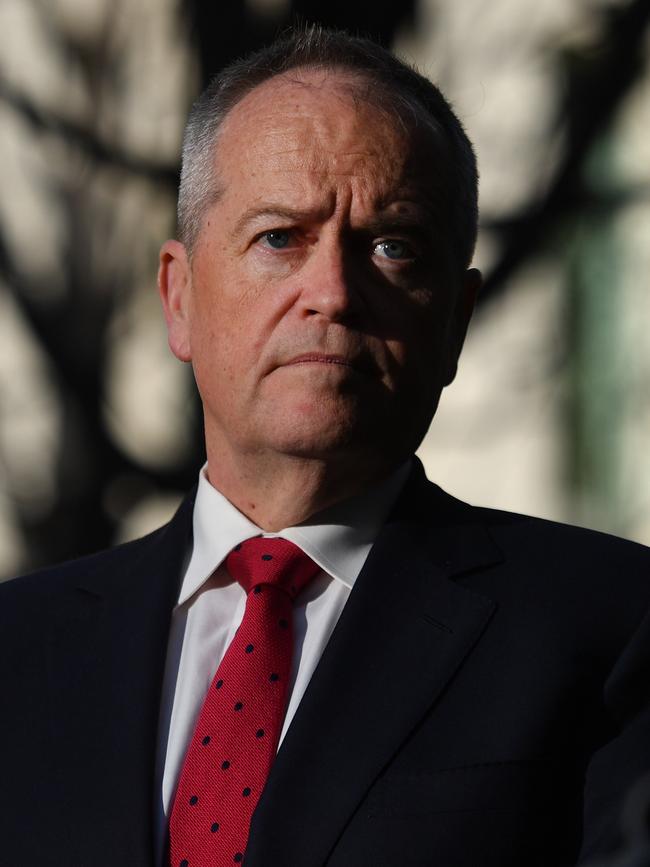
But Rory Medcalf, head of the Australian National University’s National Security College, warned that Labor’s intervention was unhelpful as the government sought to calm trade tensions and the heated rhetoric from China.
“Mr Albanese may be claiming Labor would somehow handle relations differently, but he has pointed to no fundamental difference on policy substance,” Professor Medcalf said. “So I would tend to attribute his latest remarks to political point scoring, maybe touched by lack of experience in foreign policy.”
He said Labor had “co-ownership” of the key national security foundations put in place by the government, including curbs on foreign interference and protection of critical infrastructure.
“Now is a crucial time for bipartisanship, a genuine united front in Australia’s protection of sovereignty, interests and values. China is watching intently, and so are our friends across the democratic world,” he said.
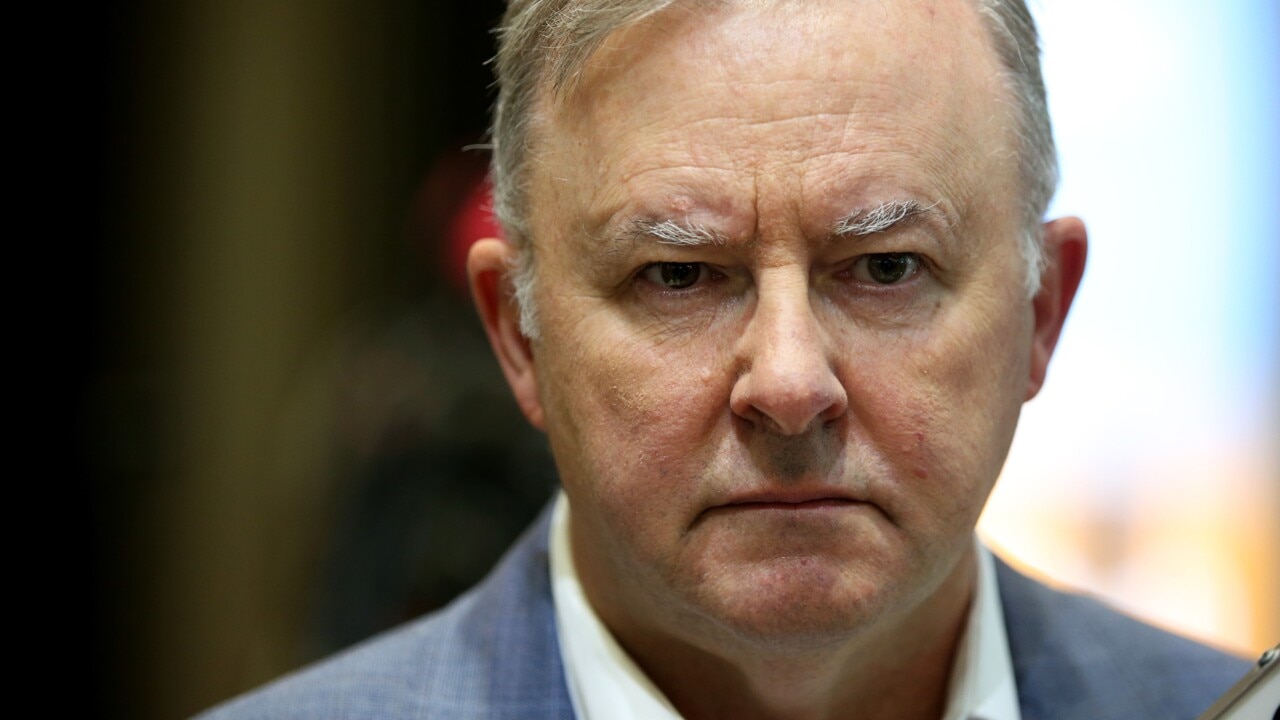
Mr Albanese said past governments had been able to stand up to Beijing without offending “for offence’s sake”. “This government seems to have presided over a complete breakdown of relationships,” he told 2SM radio. “When I was a minister, Chinese ministers visited Australia and I visited there in our national interest … promoting Australian jobs.”
China pressed its attack in a new Global Times editorial that warned Australia would face “lasting punishments” for its treatment of the country.
The newspaper, regarded as a mouthpiece for the Chinese Communist Party, said in an editorial that Beijing saw no reason to continue “appeasement of Australia”, declaring that the Morrison government was “not a ruling team that is serious and trustworthy in relations with China”.

“If Australia’s values do not include respect for a country with a population of 1.4 billion, Chinese society will help the Australians establish such a concept, regardless of how long it will take. We have enough patience,” it read.
Relations between Canberra and Beijing will be further tested on Thursday, when the government expects a Senate vote on its Foreign Relations Bill.
The bill, which could face Labor and crossbench amendments, would give the federal government powers to scuttle agreements between foreign governments and Australian states, councils and universities.
Australia’s relationship with China plunged to its lowest point in 50 years on Monday, when Chinese Foreign Ministry deputy director-general Zhao Lijian shared a tweet — which the Prime Minister called “repugnant” and “appalling” — suggesting Australian soldiers were child killers.
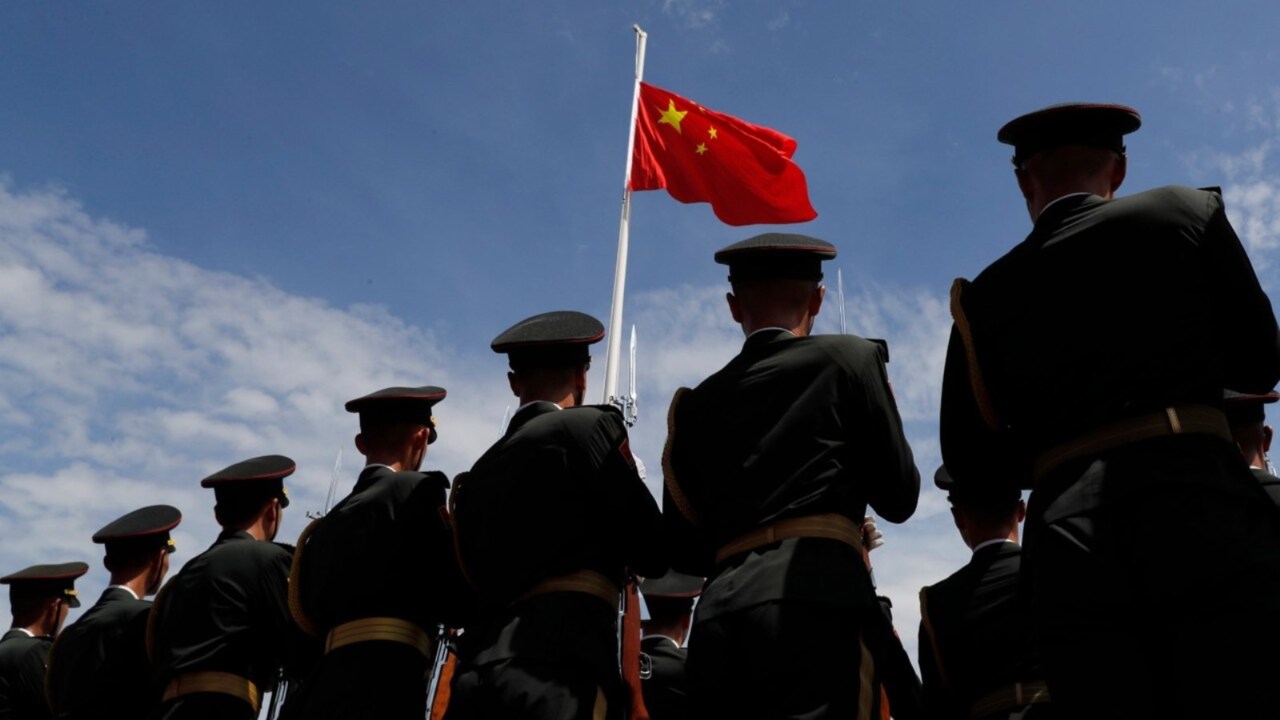
Mr Culvahouse accused Beijing of hypocrisy, contrasting Australia’s transparent investigation of alleged war crimes by special forces soldiers with China’s refusal to allow scrutiny of its own government.
“The PRC would do well to follow Australia’s example and disclose to the world all it knows about the origins of the COVID-19 virus,” the ambassador said. “And the world can only wish that the Chinese Communist Party were to bring the same degree of transparency and accountability to credible reports of atrocities against the Uighurs in Xinjiang.”
Kim Carr, a prominent figure in Labor’s left, said the government had “run headlong into a fight … without thinking through the implications”.
“I don’t think the government has given appropriate consideration to consequenc¬es, particularly given that 46 per of our exports go to China,” Senator Carr said.
The Labor attacks were part of a wider strategy, reflected in talking points instructing MPs to shift the focus onto the government.’’
The party’s daily media instructions also suggested that MPs lay the blame for China’s ban on Australian wine at the government’s feet.
More Coverage
